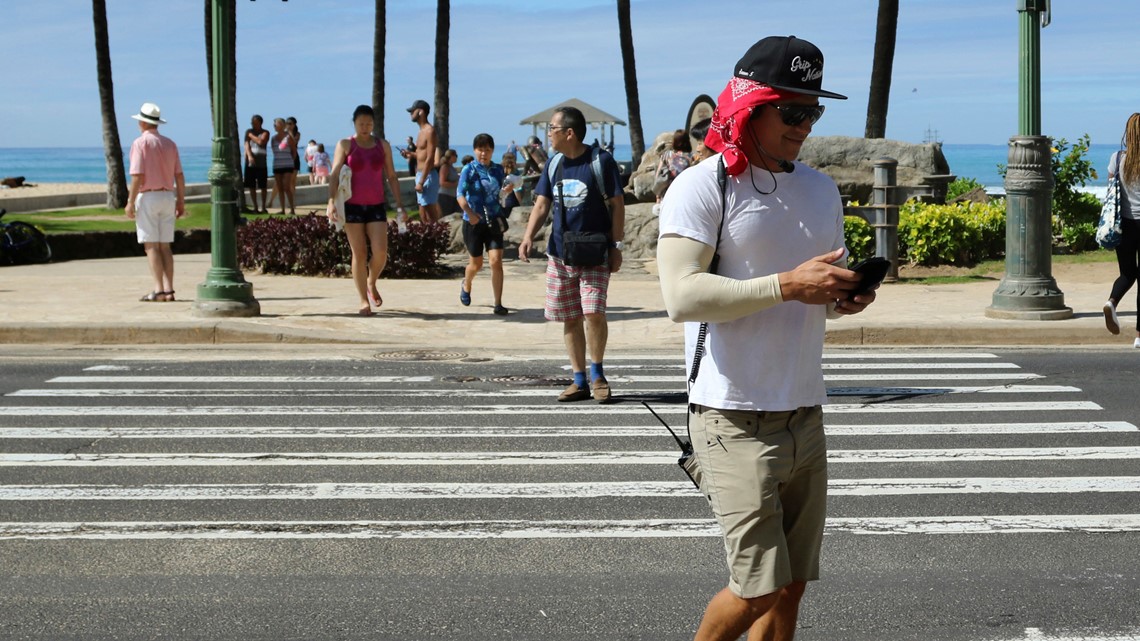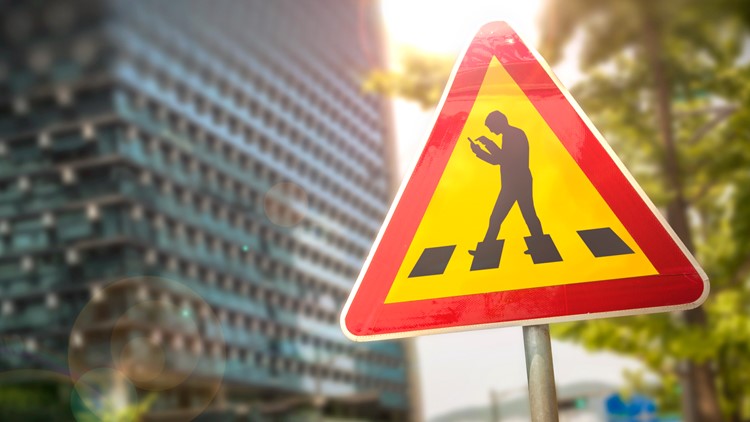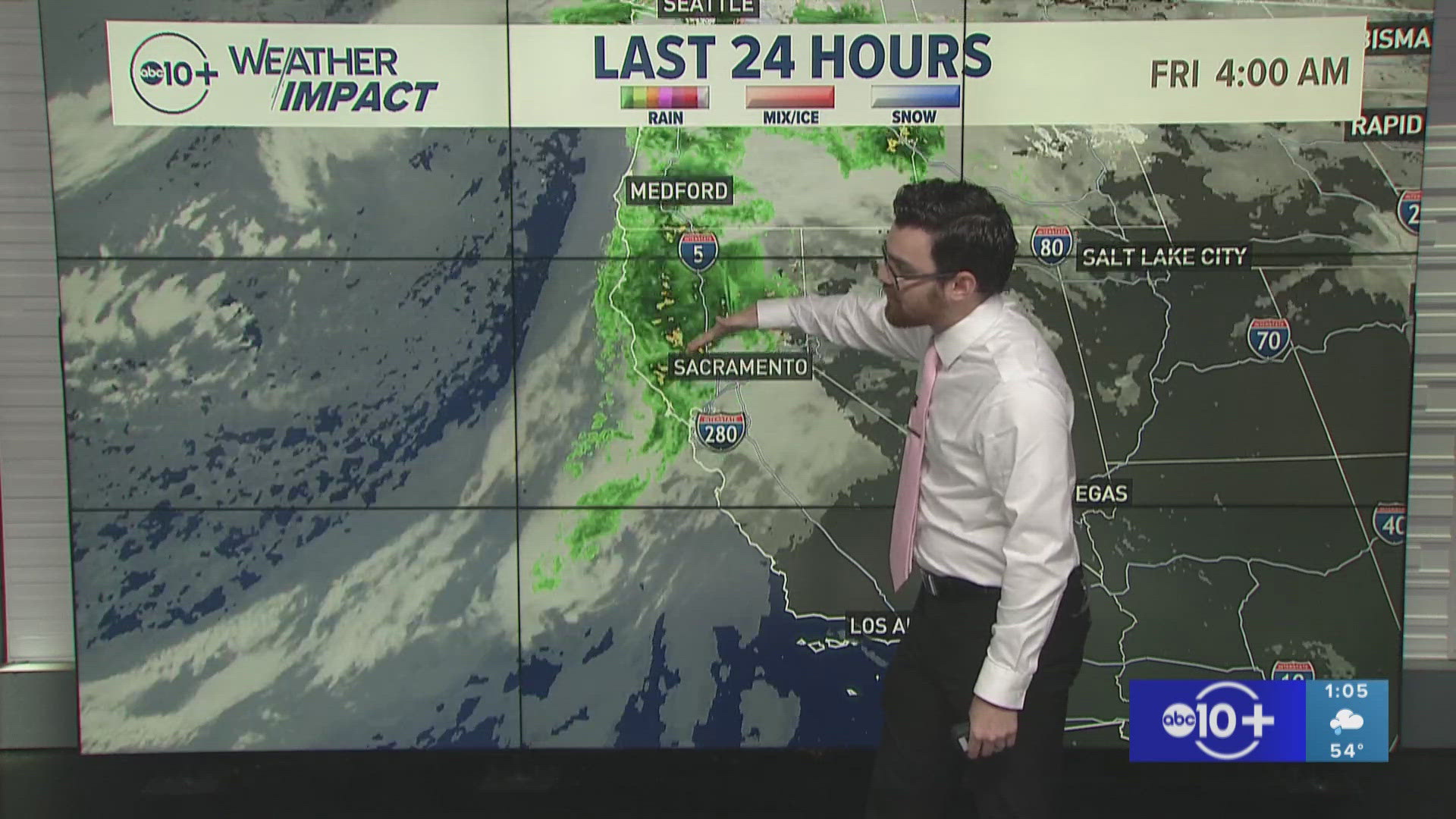LATHROP, Calif. — Looking at your cellphone while crossing the street in Lathrop might just land you in trouble with the law.
The small city in San Joaquin County made a big move on Monday by approving an ordinance that banned the use of cellphones near school crosswalks.
“I don’t want an accident where kids have two earbuds in and don’t hear a car, or they’re looking at their phone and they walk right in front of a moving vehicle,” said Councilwoman Jennifer Torres-O’Callaghan.
The ordinance is a bit of a rarity in California. Torres-O’Callaghan introduced it to the city and said she could only find one other ordinance in the state like it.
Over in Southern California, Montclar, a city in San Bernardino County, banned the use of cellphones when crossing the street in 2018. People aren’t allowed to engage in a phone call, look at their phone, or have their ears covered by headphones.
According to the City of Montclair, the behavior of pedestrians with cellphones was akin to that of a distracted driver, and they ultimately put in a fine system that scaled from $100 to $500.
Honolulu became the first major metro in the country to enact a similar ban in 2017, however, their fine scaled from $15 up to $99.


Unlike the other cities, Lathrop appears to be opting out of fines for now and vying for an educational approach. Instead of fines, there will be a warning system.
The new law means people can’t have their ears obstructed or be looking at their phone, or other mobile device, while walking through a crosswalk within a hundred feet of a school. There’ll be signage spelling out that message to anyone in that 100-foot radius, and police can still cite people to remind them of the law.
While the ordinance impacts everyone, Torres-O’Callaghan noted that the city wasn’t interested in giving fines to 4th graders and 12-year-olds, so they went for the educational approach. The law itself isn’t too different from a bike helmet law that stresses education and prevention, according to Torres-O’Callaghan.
“They might say its toothless, but the point is, more so than the paperwork... to educate,” said Torres-O’Callaghan.
If things aren’t improving for all people within roughly six to nine months, the councilwoman says that fines could find their way into the ordinance, but fines aren't the goal they want.
“For me, success is going to be having the education component of it come out so that all students are aware that they shouldn’t have two of their ears plugged while they’re crossing a crosswalk or be looking at their phone,” Torres-O’Callaghan said.
The drive for the law came out of her own experience seeing kids glued to their phones while going through the crosswalks near schools.
“You can see it when you’re going by the schools. Kids are just on their phone while walking, and they’re not looking at the roundabouts. They’re not looking at the crosswalks. They’re just on their phone looking at the screen...,” she said.
The law does have some exceptions, specifically for 911 calls, emergency personnel, and anyone who needs a device due to a disability.
Signage for the ordinance will cost roughly $30,000, which translates to 160 signs for 20 signalized crossings and 154 signs for 24 un-signalized crossings near the school.
“Hopefully, other cities will see it and also consider doing, because I think it could make a big difference in accidents with schools,” said Torres-O'Callaghan.
While the law was approved by council, it will have a second reading in January 2020 before being written into law.
FOR NEWS IN YOUR COMMUNITY,
DOWNLOAD THE ABC10 APP:
►Stay In the Know! Sign up now for ABC10's Daily Blend Newsletter
WATCH ALSO:





